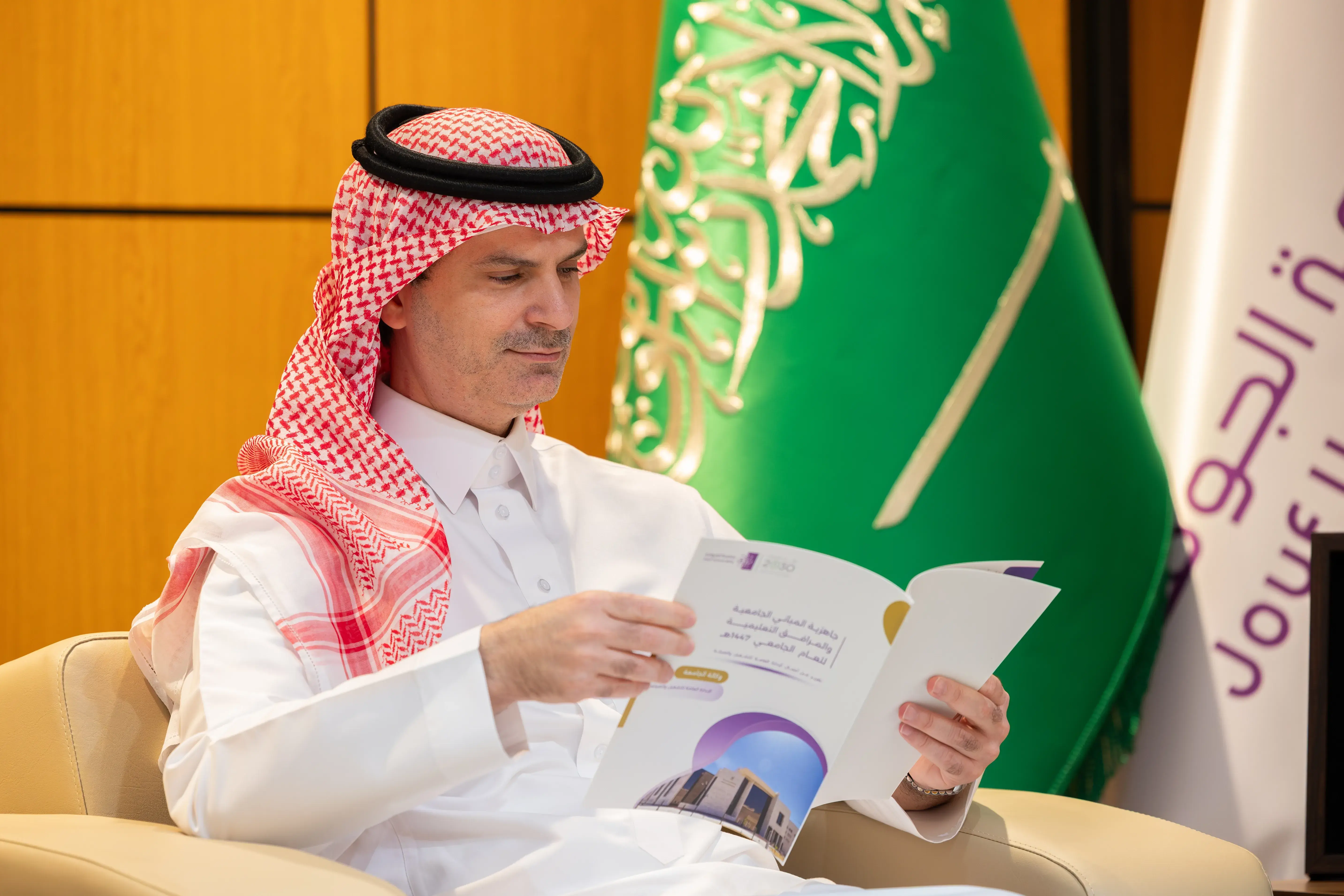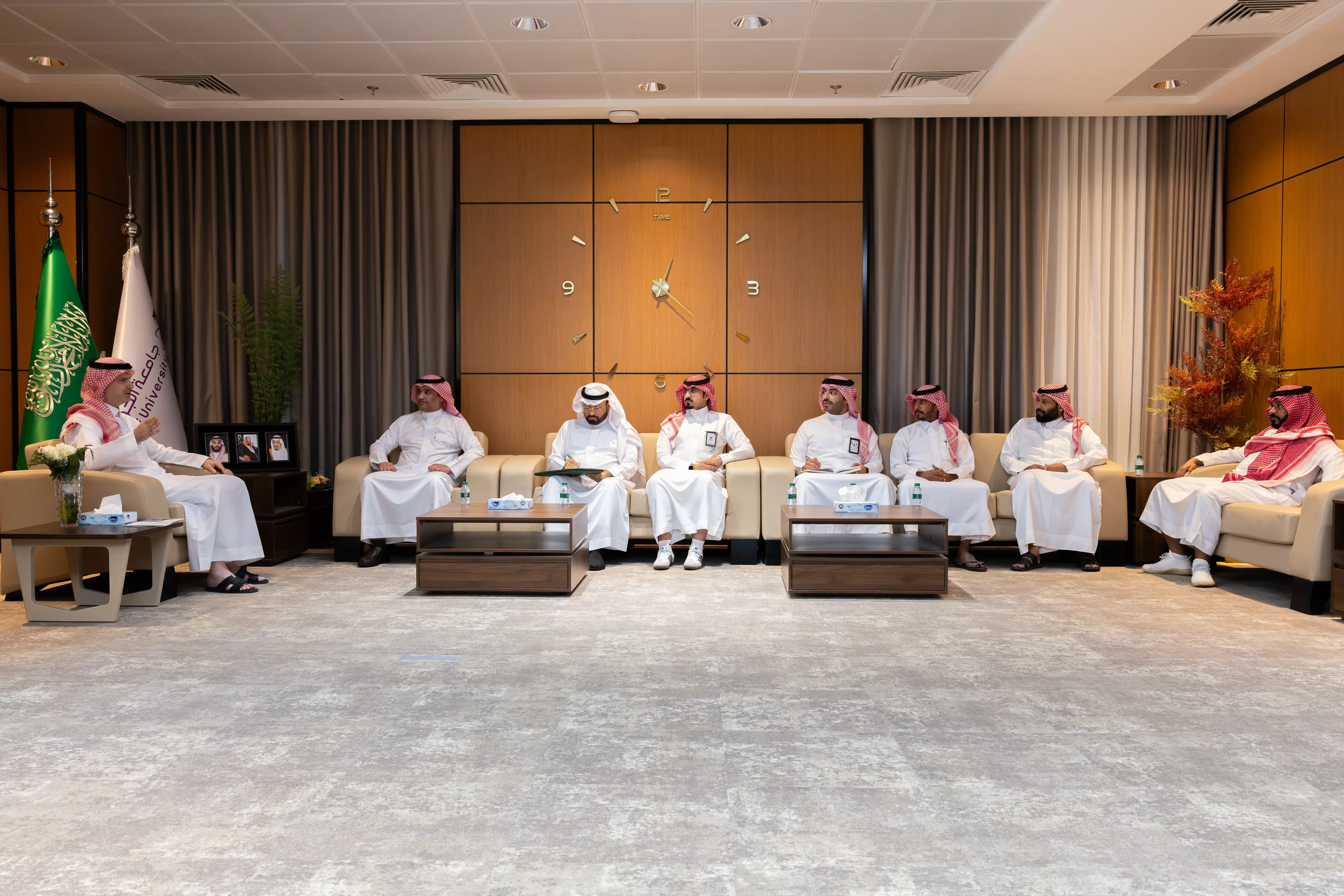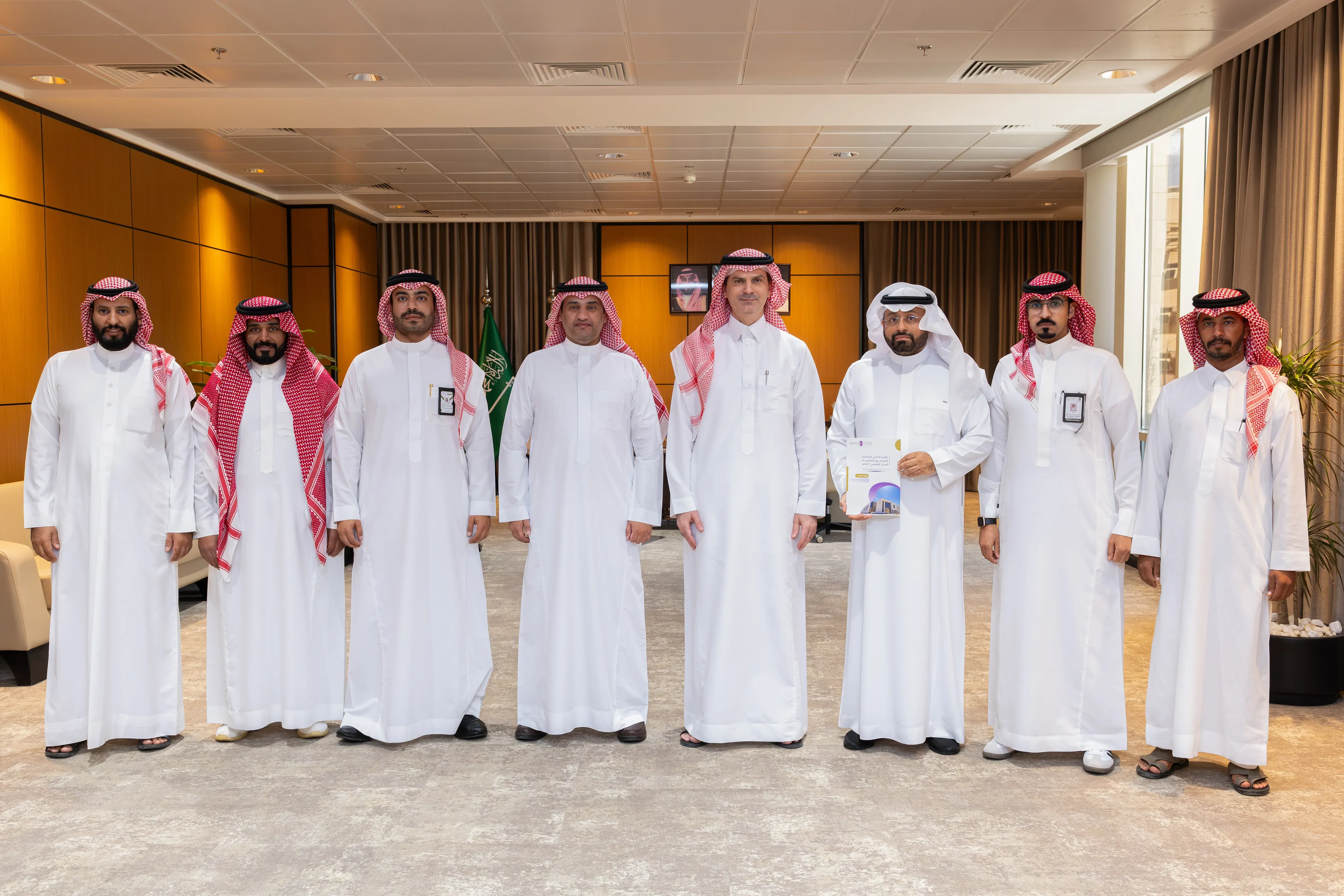Jouf University Ends Summer Operations Plan
As part of Jouf University’s plan to enhance infrastructure efficiency and ensure the sustainability of educational and research facilities—fully aligned with the objectives of Saudi Vision 2030, which emphasize quality education, infrastructure development, and the advancement of digital transformation in higher education institutions—Jouf University has concluded its summer operations and maintenance plan in preparation for the 1447 AH academic year.
In a demonstration of determination and commitment, His Excellency Prof. Mohammed bin Abdullah Al-Shaya, President of Jouf University, reviewed the Operations and Maintenance Department’s report in the presence of Vice President Dr. Saad bin Awad Al-Anazi, General Supervisor of the General Administration of Operations and Maintenance Dr. Talal bin Obeid Al-Shammari, and a number of staff members. The report highlighted the major achievements accomplished during the summer across university buildings, colleges, and branches, affirming that these efforts lie at the core of the university’s mission and strategy, in full harmony with the goals of Vision 2030.
The executive report presented by the General Administration of Operations and Maintenance outlined the scope of work completed across different sectors, ranging from the operation and maintenance of air conditioning, cooling systems, and air handling units, to the rehabilitation of water pumps and tanks, and the upgrading and precise testing of fire-fighting and early-warning systems in compliance with national and international standards. The work also included the repair of electrical stations, transformers, and distribution panels, as well as the renewal of internal and external lighting systems, ensuring safe and well-lit classrooms and facilities.


It is noteworthy that teams also carried out renovation and routine maintenance of buildings and lecture halls, transferred and prepared furniture and laboratories, and rehabilitated ceilings, doors, and curtains. Collectively, these efforts helped establish a motivating academic and research environment worthy of the university’s students.
The achievements extended beyond the main campus to the branches in Qurayyat and Tabarjal, where most air conditioning units and elevators were repaired and serviced. Readiness levels in some colleges and complexes reached 100%, reflecting the university’s strong commitment to preparing a fully integrated learning environment.
The report further highlighted the significant role of the “Maximo” technical support system, which electronically documented many completed maintenance processes, contributing to greater efficiency in field monitoring and faster response to emergency issues.
At the conclusion of the meeting, His Excellency Prof. Al-Shaya expressed his appreciation to the operations and maintenance teams, emphasizing that the high level of readiness achieved across the university’s facilities is the result of integrated institutional work that reflects a spirit of teamwork. He affirmed that these efforts go beyond routine maintenance and operations; they represent an investment in the future of education and research, and a direct reflection of the university’s strategy that places students at the forefront of its priorities, grounded on quality, excellence, and sustainability as fundamental pillars.
He added that the university is steadily aligning all operational and developmental plans with the objectives of Vision 2030, aspiring for its academic facilities to serve as a model of efficiency and preparedness, reinforcing the university’s role as a driver of development and a source of creativity and innovation, under the unwavering support of the Kingdom’s leadership for higher education institutions.
Vice President Dr. Saad bin Awad Al-Anazi also praised the scale of the accomplishments, noting that the university continues on its path of development and continuous improvement in line with future needs.
With these steps, Jouf University sets a new milestone in its path toward institutional excellence and renews its commitment to ensuring that its academic and research environment remains a strong contributor to the aspirations of the nation and its ambitious vision.





